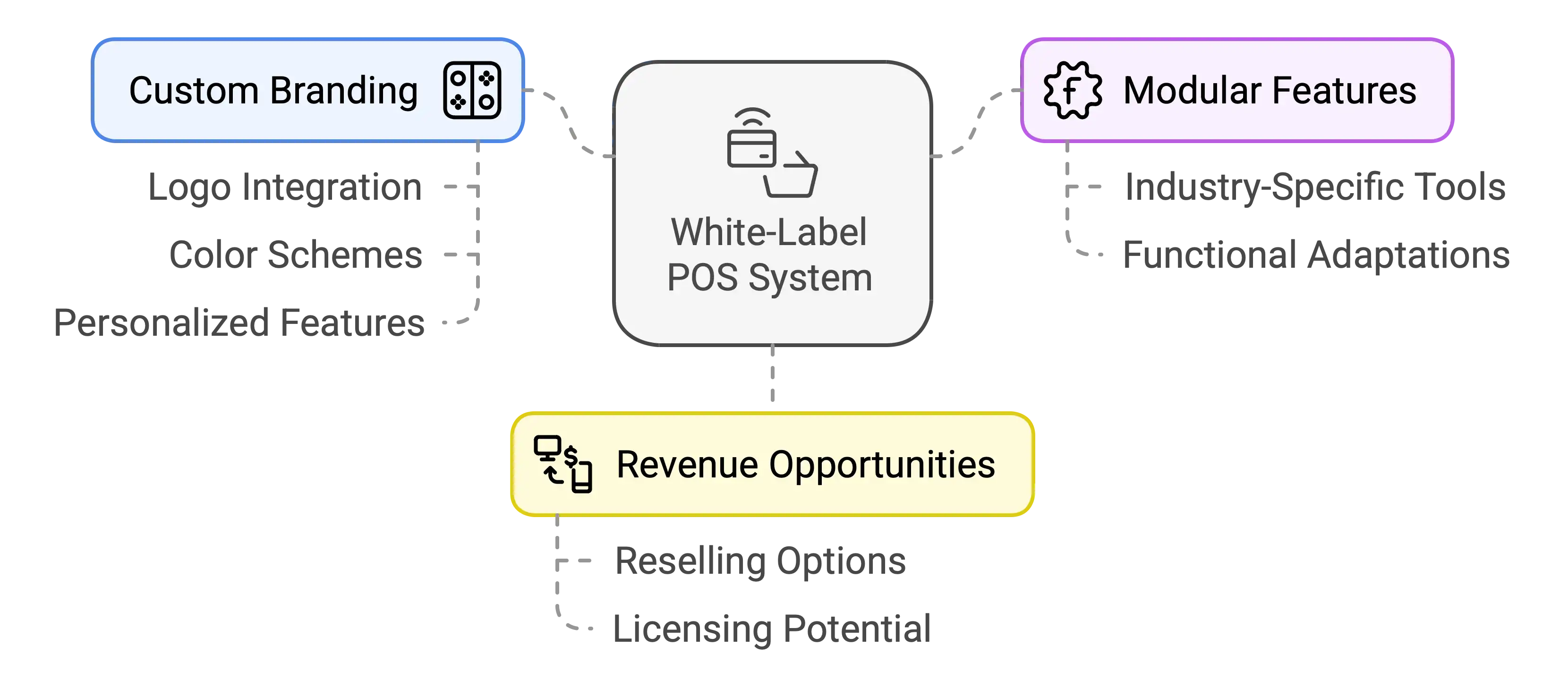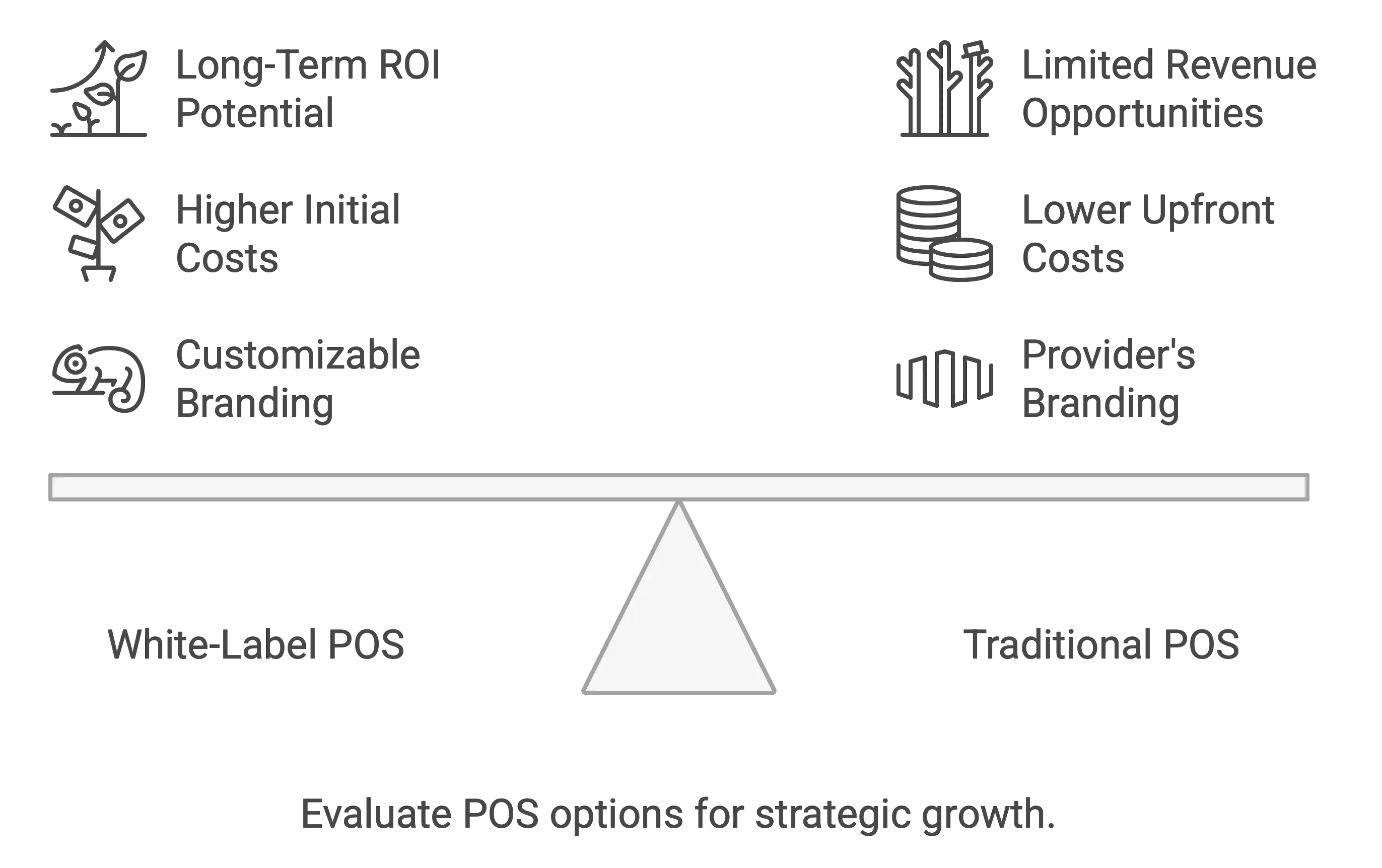White-Label POS vs. Traditional POS: Which is Right to Recommend to your Clients?
Choosing the right point-of-sale (POS) system is a critical decision for businesses. Two popular options resellers can recommend to their clients are white-label POS systems and traditional POS systems. While both serve the same primary function, they cater to different reseller needs. We will explore the differences, benefits, and which option may be best for your reseller business.

What is a White-Label POS System?
A white-label POS system is a customizable platform that allows resellers to rebrand and modify it to suit their unique needs. These systems offer :
- Custom Branding : Add your logo, colors, and personalized features.
- Modular Features : Adaptable functionalities to meet specific business or industry needs.
- Revenue Opportunities : Resell or license the system to businesses.

What is a Traditional POS System?
A traditional POS system is a ready-made platform designed to provide standard transaction processing. These systems are often :
- Preconfigured : Limited customization options.
- Vendor-Branded : Typically carry the branding of the provider.
- Static Features : Offer fixed functionalities without modular adaptability.
Key Differences Between White-Label and Traditional POS
Step 1 : Customization
- White-Label POS : Fully customizable branding and features.
- Traditional POS : Minimal to no customization available.
Step 2 : Branding Opportunities
- White-Label POS : Reinforce your brand identity with clients.
- Traditional POS : Operates under the provider’s brand.
Step 3 : Cost Structure
- White-Label POS : May involve higher initial costs but allows for long-term ROI through reselling and licensing.
- Traditional POS : Lower upfront costs but limited revenue opportunities.
Step 4 : Scalability
- White-Label POS : Easily scalable with modular features.
- Traditional POS : Fixed features may not accommodate growing business needs.

Benefits of a White-Label POS System
- Enhanced Brand Presence : Keeps your business front and center.
- Increased Client Loyalty : Tailored solutions meet client-specific needs.
- Revenue Growth : Resell and earn through licensing or transaction fees.
Case Study Highlight : A restaurant consultant adopted a white-label POS from My Cloud POS and saw a significant increase in sales by having the ability to brand the POS system and offer it as an additional product to clients.

Benefits of a Traditional POS System
- Ease of Use : Preconfigured systems with minimal setup.
- Lower Initial Investment : Ideal for small businesses with tight budgets.
- Vendor Support : Direct access to support services from the provider.
Which Option is Best for Your Business?
Choose White-Label POS if :
- You want full control over branding and features.
- You aim to resell or license the system.
- Your business requires scalable solutions for growth.
Choose Traditional POS if :
- You need a simple, ready-to-use solution.
- Your budget is limited.
- Branding and customization are not a priority.
Pro Tip : Evaluate your long-term goals to determine the best fit.
White-Label POS vs. Traditional POS
Both white-label POS systems and traditional POS systems have their merits. While traditional systems offer simplicity and lower costs, white-label solutions provide unparalleled branding opportunities, customization, and scalability. Assess your business needs and future growth plans to make the right choice.
Ready to explore the benefits of a white-label POS system? Contact My Cloud POS today for a customized solution that aligns with your business goals!
Get Started Today
We look forward to seeing you succeed!

